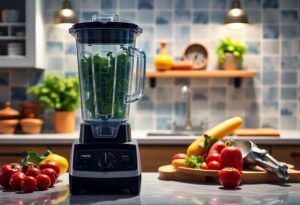Introduction to Fertilizing Corn
Corn is one of the most crucial crops in the United States and around the world. To truly harness its full potential, proper care and fertilizer for corn plant growth is paramount. If you’re curious about how to foster flourishing, robust corn, it starts with understanding the right fertilizers to use. The selected fertilizer not only supports plant growth but also affects the quality and flavor of the harvest. Given the rising popularity of organic gardening, investing in knowledge about corn fertilization is more important than ever.
Types of Corn Fertilizers
When considering a fertilizer for corn plant, it’s essential to understand the different types available. They can mainly be categorized into organic and synthetic fertilizers. Organic fertilizers like compost and manure enhance the soil’s texture while providing essential nutrients. On the other hand, synthetic fertilizers deliver nitrogen, phosphorus, and potassium quickly and effectively. The key is choosing a fertilizer that complements your soil’s needs and the specific type of corn you are growing.
Ideal Timing for Fertilizing Corn
The timing of your corn fertilization plays a crucial role in your crop’s success. Fertilizer for corn plant should ideally be applied in two main phases: before planting and right after the seeds sprout. Additionally, you can consider foliar feeding during vigorous growth periods. Utilizing foliar fertilizers is beneficial, and therefore, observing the plants to deliver timely nutrients is vital.
Conducting a Soil Test
Understanding how to prepare your soil for corn begins with conducting a soil test. Soil testing companies often offer self-testing kits to help you discover what nutrients are abundant and which ones are lacking in your soil. The chosen fertilizer for corn plant should be based on these soil test results for optimal effectiveness tailored to the needs of your corn.
Preparing the Soil Before Planting
Proper fertilization should go hand in hand with proper soil preparation. Aside from fertilization, it’s essential to loosen the soil and maintain adequate moisture. Well-prepped soil improves nutrient uptake, resulting in robust plant growth. If your soil is acidic, applying lime will also yield great results, promoting healthier corn plants.
Importance of Watering in Fertilizing Corn
Watering is a life-giving process, especially when it comes to fertilizing corn. Fertilizer for corn plant should be applied alongside the right amount of water to ensure nutrients effectively seep into the soil. Regular watering helps maintain the necessary moisture levels, directly impacting the growth and yield of your corn. Therefore, well-timed watering combined with adequate fertilization lays the foundation for bountiful harvests.
Pest Management Along with Fertilization
It’s essential to consider plant protection during their growth phase. While using fertilizer for corn plant, pay attention to pest management products. By strengthening corn’s immune system with the right fertilizers, you can effectively minimize the risk of pest invasions. When selecting pest management solutions, strive to honor natural processes, steering clear of harmful chemicals detrimental to the environment.
Conclusion
Choosing the right fertilizer for corn plant and using it correctly is crucial for achieving healthy, abundant yields. Remember to analyze your soil, apply fertilizers appropriately, and water your crops diligently. The results will surely reflect in the taste and size of your harvests. Take action now, making informed decisions in your corn cultivation, to welcome larger and tastier yields on your table!
Disclaimer
The information in this article is for informational purposes only and does not replace professional advice.

















